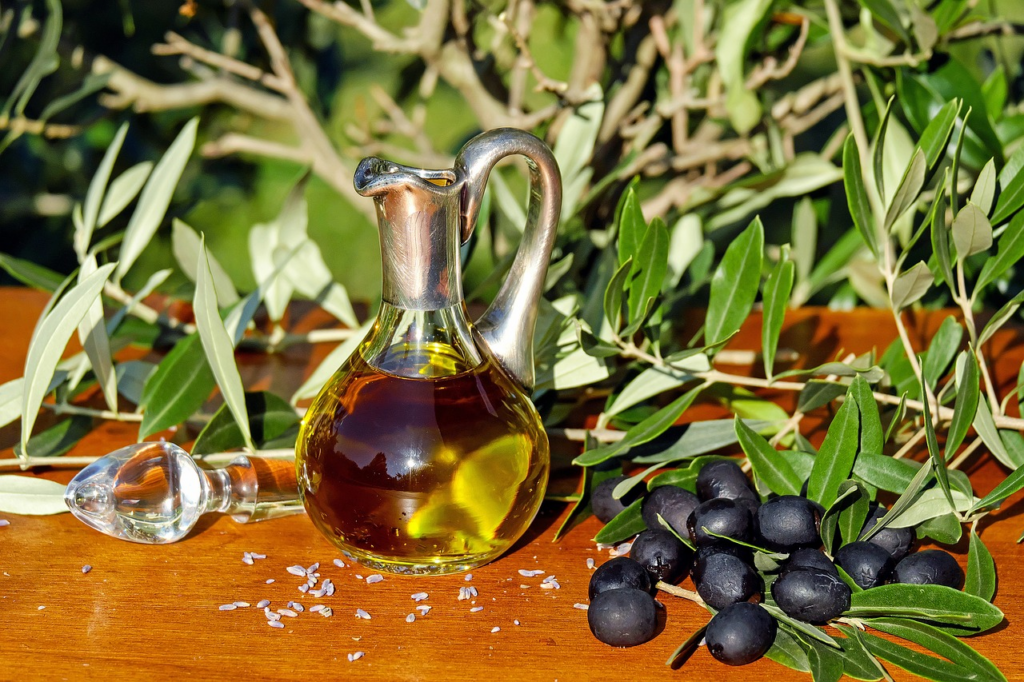As we embark on a new year, many of us take the opportunity to reorganize our kitchens, especially the array of cooking oils we keep. Amidst the clutter, it’s crucial to identify which oils truly support brain health and which might inadvertently elevate health risks. Recent studies have revealed that certain oils, often labeled as ‘healthy,’ may contribute to high cholesterol levels and increase the risk of dementia.1 This article explores the intricate relationship between cooking oils, cholesterol, and dementia, providing insights to help you make informed dietary choices.
The Link Between Cooking Oils, Cholesterol, and Dementia

High cholesterol levels have long been associated with heart and circulatory diseases. However, emerging research highlights a significant connection between elevated LDL cholesterol and an increased risk of dementia. The updated Lancet Commission study on dementia prevention identifies high LDL cholesterol as a novel risk factor, suggesting that managing cholesterol levels could play a vital role in delaying or preventing dementia. The Alzheimer’s Society reports that reducing bad cholesterol can potentially ward off nearly half of dementia cases worldwide.
Read More: Consumption Of This Oil Is Linked to Dementia Mortality
The Hidden Dangers of ‘Healthy’ Oils

Despite being marketed as beneficial, some cooking oils may be detrimental to your health. Nutritionist James Vickers from Vitality has labeled coconut oil as the “worst” food for raising cholesterol levels, challenging its previously held reputation as a ‘healthy’ oil. Coconut oil contains over 80% saturated fat, which is known to elevate LDL cholesterol, leading to arterial obstructions and increased risks of strokes and heart attacks. A 2020 study supports these findings, indicating that coconut oil can significantly raise LDL levels. James advises using coconut oil sparingly, akin to butter, and opting for unsaturated oils in daily cooking.
Common Myths #1: Eliminating Oils from the Diet

There’s a growing trend advocating for the complete elimination of oils to prevent heart disease and dementia. However, recent studies suggest that including certain healthy fats is more beneficial than adopting a very low-fat diet. The Mediterranean diet, which incorporates healthy oils like extra-virgin olive oil, has been shown to reduce mortality risks significantly.2 Replacing saturated fats with healthier alternatives can lower the risk of dying from any cause by 8% to 34%.
2. Coconut Oil is Brain Food

While coconut oil and its components, such as medium-chain triglycerides (MCTs), have been touted for brain health benefits, the evidence remains inconclusive. The high saturated fat content in coconut oil outweighs its potential benefits, as it elevates harmful cholesterol levels, a known risk factor for dementia. For preventing Alzheimer’s and dementia, the data clearly indicate avoiding high saturated fat foods like coconut oil.
Read More: Boiling Whole Walnuts: Unveiling Grandma’s Time-Tested Culinary Trick
3. Seed Oils are Toxic

Seed oils like canola, rice bran, and grapeseed have been criticized for their high omega-6 fatty acid content, which some claim to be inflammatory. However, when balanced with omega-3 intake, these oils can be part of a healthy diet. The notion that seed oils are inherently toxic lacks nuance and fails to consider their potential health benefits.
4. You Can’t Cook with Olive Oil

Contrary to some beliefs, extra-virgin olive oil (EVOO) can be used for cooking at moderate temperatures. EVOO retains its beneficial polyphenols and antioxidants when used appropriately, supporting both heart and brain health, combatting dementia. High-heat cooking should still be reserved for oils with higher smoke points, like avocado or pecan oil.
Healthier Alternatives to Raise Brain Health and Lower

To maintain optimal health and reduce the risk of dementia, consider incorporating the following alternatives into your diet:
- Extra-Virgin Olive Oil: Rich in monounsaturated fats and antioxidants, EVOO supports cardiovascular and neurological health.
- Avocado Oil: With a high smoke point and healthy fat profile, avocado oil is ideal for high-heat cooking.
- Hemp Seeds: Packed with omega-3 and omega-6 fatty acids, hemp seeds contribute to reducing inflammation and actively combatting dementia.
- Oily Fish: Sources like sardines provide essential omega-3 fatty acids that are beneficial for brain health and cholesterol management.
Practical Tips for Choosing and Using Cooking Oils

- Limit Saturated Fat Intake: Aim to keep saturated fats below 10% of your total daily calories to manage cholesterol levels.
- Opt for High-Fiber Foods: Incorporate fruits, vegetables, and whole grains to support overall health.
- Use Healthy Cooking Techniques: Choose grilling, baking, or sautéing with healthy oils instead of frying with saturated fats.
- Store Oils Properly: Ensure oils like EVOO are kept fresh by consuming them within six months of opening and checking harvest dates to avoid rancidity.
Conclusion

Selecting the right cooking oil is paramount for maintaining heart and brain health. While some oils marketed as ‘healthy’ may pose risks by elevating bad cholesterol and increasing dementia risk, others like extra-virgin olive oil and avocado oil offer protective benefits when used appropriately. By understanding the nuances of different cooking oils and making informed choices, you can significantly enhance your diet and reduce the risk of chronic diseases. Reassess your pantry today and make swaps that support a healthier, brain-friendly lifestyle.
Read More: 10 of The Healthiest and Worst Oils For Your Health
Sources
- “‘Healthy’ cooking oil can rocket bad cholesterol levels and dementia risk.” Mirror. Freya Hodgson. August 6, 2024.
- “The Best Cooking Oils for Brain Health.” Brain Health Kitchen. Annie Fenn, MD. January 3, 2023.

